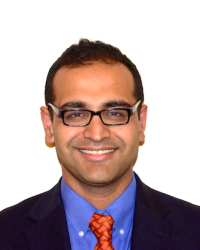Greenway Health may not be a household name outside of Carrollton, its headquarters city, though many sports fans may have noticed that professional golfer Jason Dufner wears its logo on his golf shirts.
But in the medical field, Greenway Health has created a major profile. It’s among the leaders in the business of electronic health records and digital services for physicians.
The company announced Wednesday that it is establishing an IT development center in Cobb County in metro Atlanta that will create 150 new jobs.
Also Wednesday, other health IT companies in Georgia announced expansions and other major corporate news, during a media tour preceding the Health IT Leadership Summit in Atlanta on Thursday.
Industry leaders say Georgia, and metro Atlanta in particular, have become known as the nation’s health IT capital.
According to the Metro Atlanta Chamber, there are more than 250 health IT companies in Georgia, supporting about 30,000 jobs. And Healthcare Informatics Magazine lists eight Georgia-based companies in its top 100 health IT companies in 2014, based on revenues from the previous year.
Companies in the industry offer a range of products and services, from electronic health records, medical billing and revenue management to diagnostics, preserving the security of information exchanges, and consumer health information.
The newsmakers Wednesday included Sensiotec, which announced that Marietta-based WellStar Health System is acquiring a 5 percent stake in the company.
WellStar’s Center for Health Tranformation will deploy Sensiotec’s radar-based patient monitoring system in various clinical settings.
And Atlanta-based Sharecare said Wednesday that it is creating 150 new jobs and is acquiring a New Jersey-based company.
The acquisition of Quality Health, said Kathy Harris of Sharecare, “allows us to reach tens of millions of consumers.’’
Sharecare – founded by WebMD founder Jeff Arnold and Dr. Mehmet Oz, host of “The Dr. Oz Show” – provides health and wellness information to consumers.
The media tour Wednesday was sponsored by the Technology Association of Georgia, the Metro Atlanta Chamber and the Georgia Department of Economic Development.
Better medical monitoring
“Georgia has really got a foundation in regards to health IT leadership,’’ said Robin Hackney of Greenway. The major universities in the state play a big role in that, she added. The company sees future growth in interoperability, the ability to connect different IT systems together.
Sensiotec has created a technology to improve monitoring of chronically ill patients, from hospitals and long-term care settings to the home.
Its system can provide “early warning’’ of a potential adverse patient event, such as a physically unstable patient at risk of falling, said Dr. Jiten Chhabra, the company medical director.
The company moved the technology from Canada to Atlanta and Georgia Tech to develop the system more fully. “It’s an awesome place’’ for health IT, said Robert Arkin, Sensiotec’s CEO.
Meanwhile, Tech operates a lab that has assisted in the development of a range of health IT products. Tech officials demonstrated different IT systems Wednesday that:
** Help educate and connect breast cancer patients in Rome to services.
** Allow families to get updated information on their loved one’s condition in a hospital through a text message.
** Facilitate a remote early diagnosis of autism in children, on a telemedicine-style platform.
Such health IT services are not just concentrating on urban areas. In a presentation at Morehouse School of Medicine, Baha Zeidan, CEO of Azalea Health, said his company has focused in part on serving rural physicians with electronic health records and financial practice management.
The health IT industry shows no signs of slowing down, with consumer demand for information growing, as well as clinical settings requiring faster and better data.
Said Harris of Sharecare: “We expect growth in health IT in the next five to 10 years will eclipse anything we’ve seen over the past five to 10 years.”



